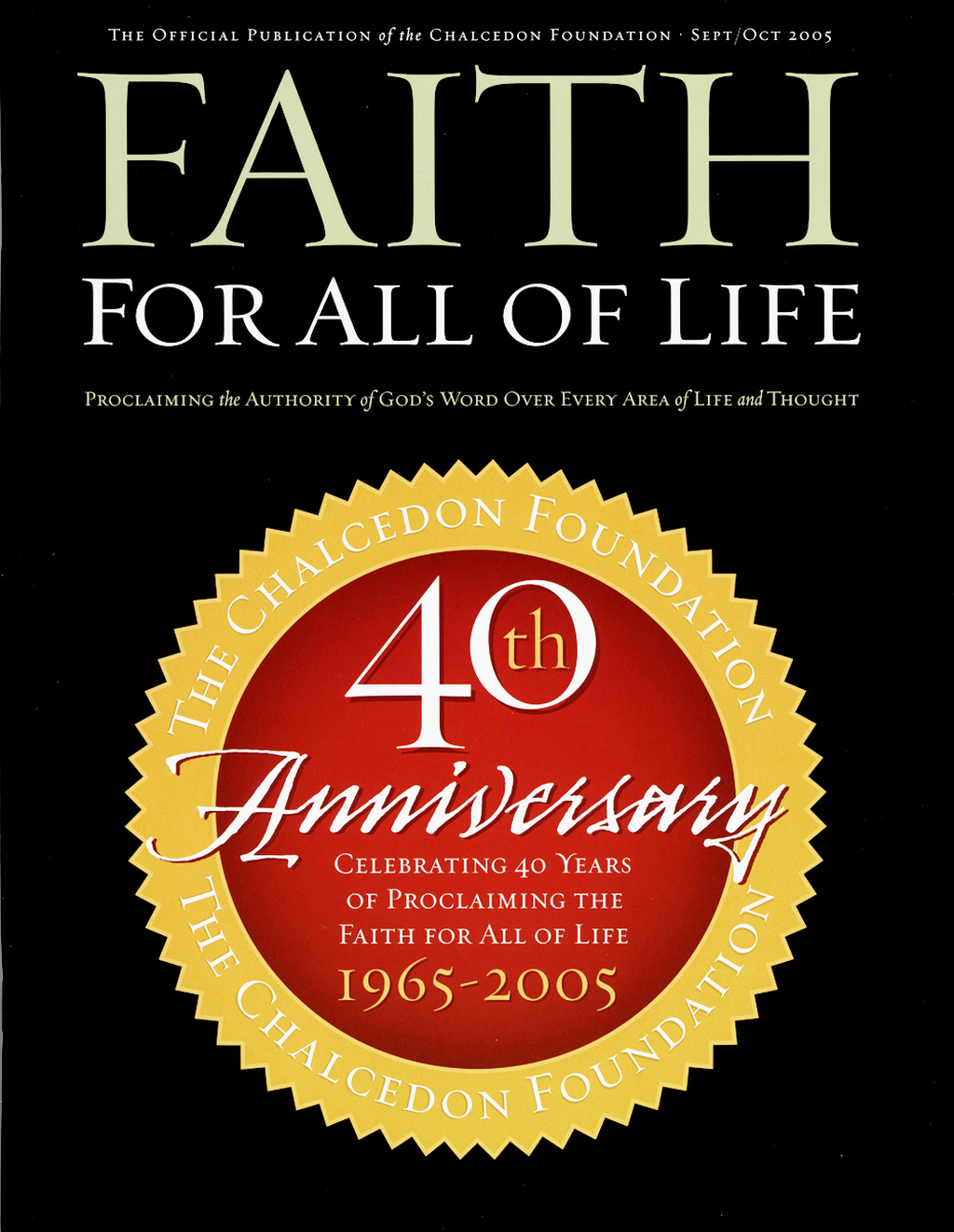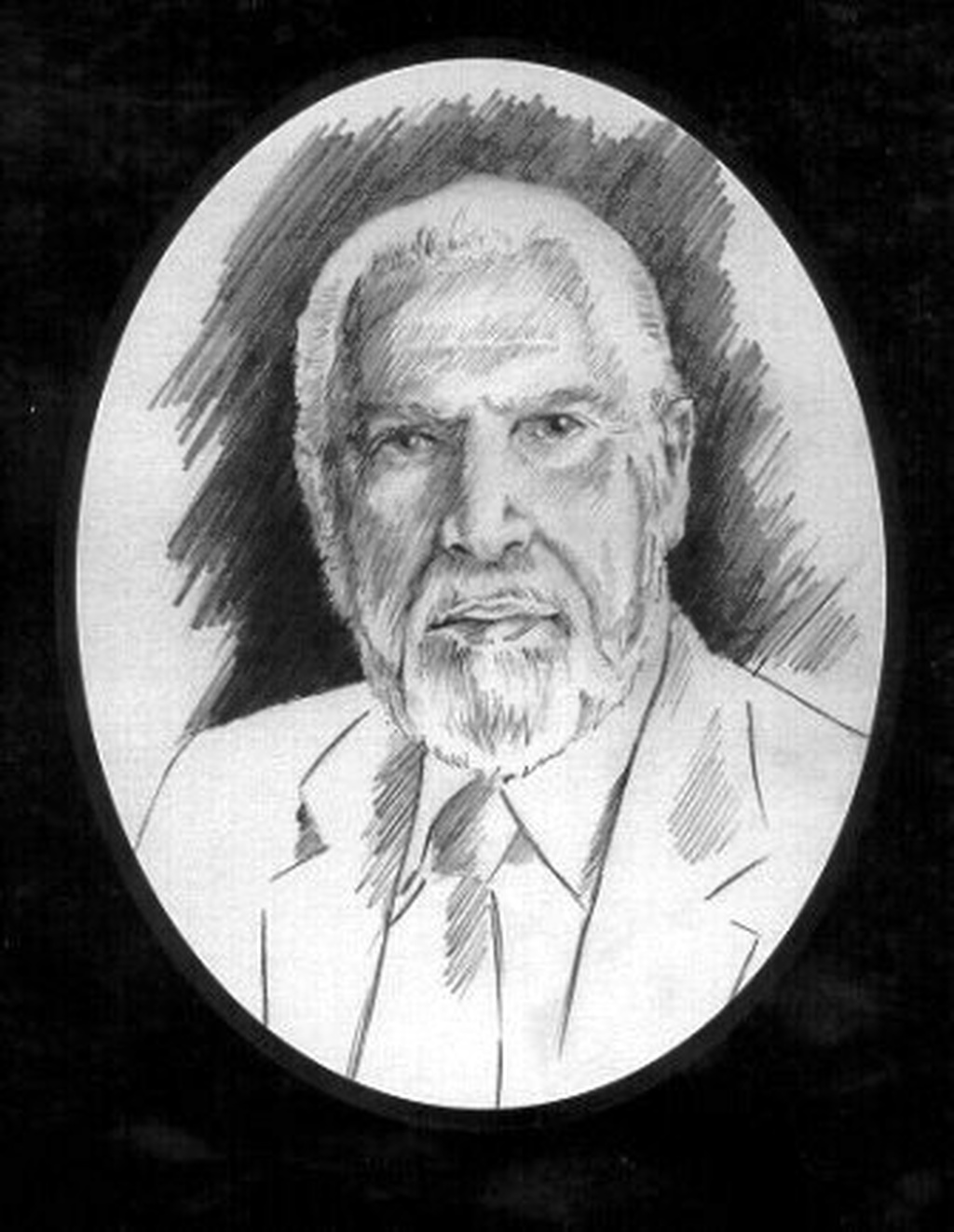
Magazine Issue
40th Anniversary Issue
The ministry milestone of 40 years of cogent commentary is examined in this issue of Faith for All of Life.
September/October 2005 Articles:
Chalcedon Report No. 5

- R. J. Rushdoony
My Recollection of Chalcedon’s First Forty Years

- Mark R. Rushdoony
The Story of an Idea
- Christopher J. Ortiz
A Daughter’s Memories

- Rebecca Rushdoony Rouse
How Rushdoony Changed My Family

- Andrea G. Schwartz
A Great Reformed Defender of the Faith
- Christopher B. Strevel
Rushdoony as Prophet

- Lee Duigon
Examining the Agenda of Secularism

- Martin G. Selbrede
Appreciation for Rousas John Rushdoony
- Joe Morecraft, III

Remembering Rushdoony
- Kenneth L. Gentry, Jr., Th.D.
Remembering Rush
- Samuel L. Blumenfeld
Rushdoony and His Impact on Economics
- Timothy D. Terrell
Rushdoony
- Roger Schultz